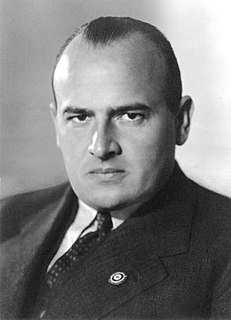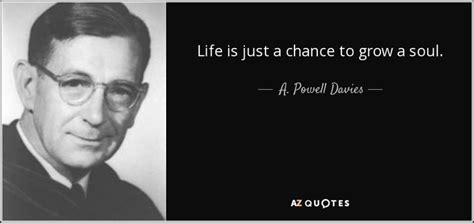A Quote by Karl Wilhelm Friedrich Schlegel
Whoever has not arrived at the clear insight that there might be greatness entirely outside his own sphere for which he has no understanding, whoever does not have at least a dim inkling in which area of the human spirit this greatness might be situated: he is within his own sphere either without genius, or he has not educated himself up to the point of the classical attitude.
Related Quotes
Some philosophers tell us that selfishness is at the root of our best loves and affections. Mr. Dombey's young child was, from the beginning, so distinctly important to him as a part of his own greatness, or (which is the same thing) of the greatness of Dombey and Son, that there is no doubt his parental affection might have been easily traced, like many a goodly superstructure of fair fame, to a very low foundation.
Spinoza , for example, thought that insight into the essence of reality, into the harmonious structure of the eternal universe, necessarily awakens love for this universe. For him, ethical conduct is entirely determined by such insight into nature, just as our devotion to a person may be determined by insight into his greatness or genius. Fears and petty passions, alien to the great love of the universe, which is logos itself, will vanish, according to Spinoza, once our understanding of reality is deep enough.
The ignorant man is not free, because what confronts him is an alien world, something outside him and in the offing, on which he depends, without his having made this foreign world for himself and therefore without being at home in it by himself as in something his own. The impulse of curiosity, the pressure for knowledge, from the lowest level up to the highest rung of philosophical insight arises only from the struggle to cancel this situation of unfreedom and to make the world one's own in one's ideas and thought.
The Lord has given the Holy Spirit upon the earth, and in whomsoever He dwells, that one feels paradise within himself. You might say: why hasn't this happened to me? Because you have not given yourself over to the will of God, but you live according to yourself. Look at the one who loves his own will. He never has peace in himself and is always displeased with something. But whoever has given himself over to God's will perfectly has pure prayer. His soul loves the Lord, and everything is acceptable and good to him.
Faced with a world of "modern ideas" which would like to banish everyone into a corner and a "specialty," a philosopher, if there could be a philosopher these days, would be compelled to establish the greatness of mankind, the idea of "greatness," on the basis of his own particular extensive range and multiplicity, his own totality in the midst of diversity.
It is equally clear that a government must govern, must prescribe and enforce laws within its sphere or cease to be a government. Moreover, the individual must be independent and free within his own sphere or cease to be an individual. The fundamental question was then, is now, and always will be through what adjustments, by what actions, these principles may be applied.
What becomes decisive to a Justice's functioning on the Court in the large area within which his individuality moves is his general attitude toward law, the habits of the mind that he has formed or is capable of unforming, his capacity for detachment, his temperament or training for putting his passion behind his judgment instead of in front of it. The attitudes and qualities which I am groping to characterize are ingredients of what compendiously might be called dominating humility.
The person who experiences greatness must have a feeling for the myth he is in. He must reflect what is projected upon him. And he must have a strong sense of the sardonic. This is what uncouples him from belief in his own pretensions. The sardonic is all that permits him to move within himself. Without this quality, even occasional greatness will destroy a man.
In the absence of government each man learns to think, to act for himself, without counting on the support of an outside force which, however vigilant one supposes it to be, can never answer all social needs. Man, thus accustomed to seek his well-being only through his own efforts, raises himself in his own opinion as he does in the opinion of others; his soul becomes larger and stronger at the same time.
Strange is the vigour in a brave man's soul. The strength of his spirit and his irresistible power, the greatness of his heart and the height of his condition, his mighty confidence and contempt of danger, his true security and repose in himself, his liberty to dare and do what he pleaseth, his alacrity in the midst of fears, his invincible temper, are advantages which make him master of fortune.







































